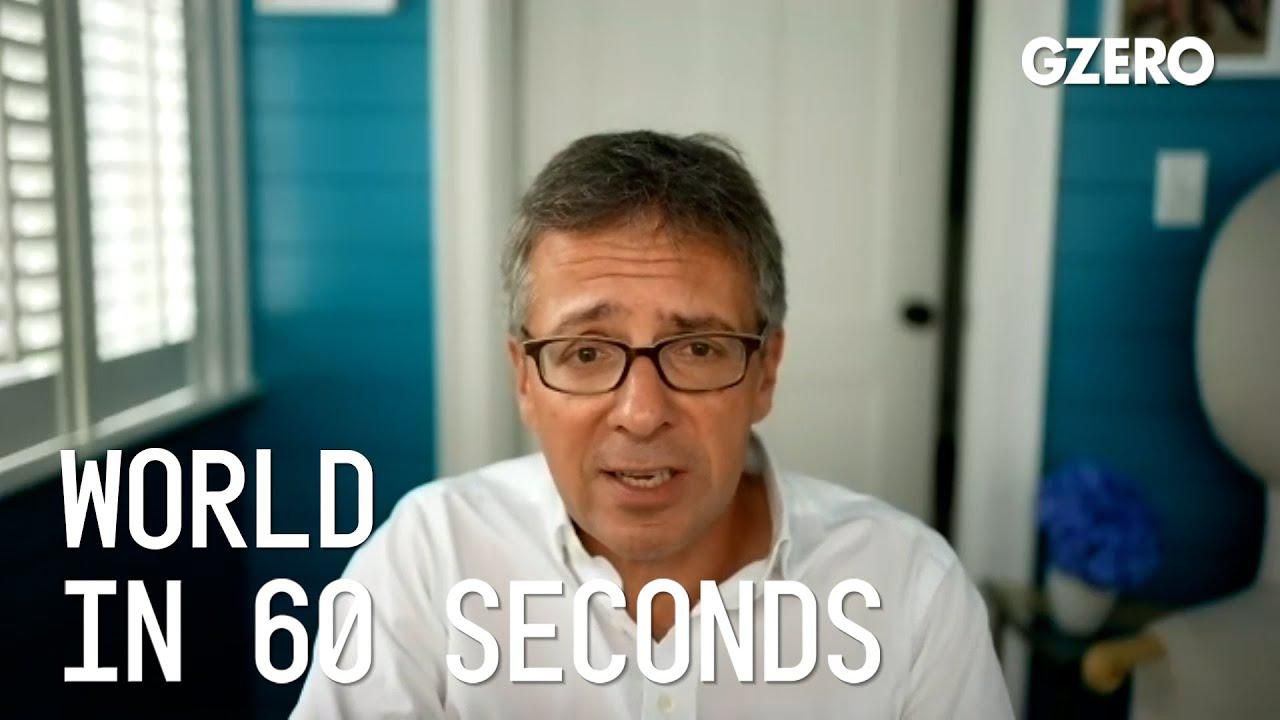Ian Bremmer shares his insights on global politics this week with a look at Afghanistan post-US withdrawal, how ISIS-K will complicate a Taliban-led Afghanistan, and EU travel recommendations.
What are your thoughts now that America's 20-year war in Afghanistan has officially ended?
Ongoing, it means much less coverage of Afghanistan in American media, something certainly President Biden is happy to hear and see. In part, we're going to continue to watch what happens with the couple of hundred Americans that are still on the ground. There is every intention to get them out, but I wouldn't say there is yet a plan.
And that is going to require a coordination of reliance with the Taliban government that is hardly experienced and hardly trustworthy. And then finally, the ongoing question of how the United States deals with ISIS-K, other organizations on the ground that are looking to kill Americans if they can. The war on terror is certainly not over, even though the war in Afghanistan for American soldiers is done. Those are a few views. I could go on for hours on this.
Who is ISIS-K? How do they complicate a Taliban-led Afghanistan?
Well, they are Sunni extremists with a mandate, if you will, to attack the Taliban, a mandate to attack the West. I think what's going to happen is you're going to have a Taliban government with an ISIS-K insurgency. The Pentagon is saying they estimate some 5,000 ISIS-K fighters on the ground right now. Certainly, the US still has capacity in terms of signals intelligence, satellite imagery, and some level of intel in conversations on the ground with Taliban that would allow the Americans to continue to engage in a fight against them, but that's very different from having boots on the ground and an embassy, which has now closed. So, it's going to be a challenge, much bigger a problem for the Afghans, of course, then for the Americans, a bigger problem for the Europeans than for the Americans, part of the reason why Biden administration wanted to end the war.
Why is the EU proposing travel restrictions on US visitors again?
Well, they're not imposing. They're not imposing travel restrictions. They're making recommendations with individual European countries now can choose to implement or not. And by the way, even if they implement, they can still have exceptions for things like, are you vaccinated? Do you have a negative test? The issue here is that when you see headlines about, "You may have to quarantine, you may not come in," a lot of people that are making travel to Europe that is not essential are going to kick those trips back. They're going to say, "Ah, it's too difficult. It's too uncertain." So, there will be an economic impact on Europe as a consequence of that, but clearly the big issue is delta variant and all sorts of cases, over a hundred thousand a day now in the United States, averaging just over a thousand deaths a day, not something anyone wanted to see in the United States or anywhere in the world. And it means that you're still having all of these stop, start, stop, start, and getting the economy and getting life back to usual.
More For You
People in support of former South Korean President Yoon Suk Yeol rally near Seoul Central District Court in Seoul on Feb. 19, 2026. The court sentenced him to life imprisonment the same day for leading an insurrection with his short-lived declaration of martial law in December 2024.
65: The age of former South Korean President Yoon Suk Yeol, who was sentenced to life in prison on Thursday after being found guilty of plotting an insurrection when he declared martial law in 2024.
Most Popular
In an era when geopolitics can feel overwhelming and remote, sometimes the best messengers are made of felt and foam.
The Hungarian election is off to the races, and nationalist Prime Minister Viktor Orbán is facing his most serious challenger in 16 years.
Does skepticism rule the day in politics? Public opinion data collected as part of the Munich Security Conference’s annual report found that large shares of respondents in G7 and several BRICS countries believed their governments’ policies would leave future generations worse off.
